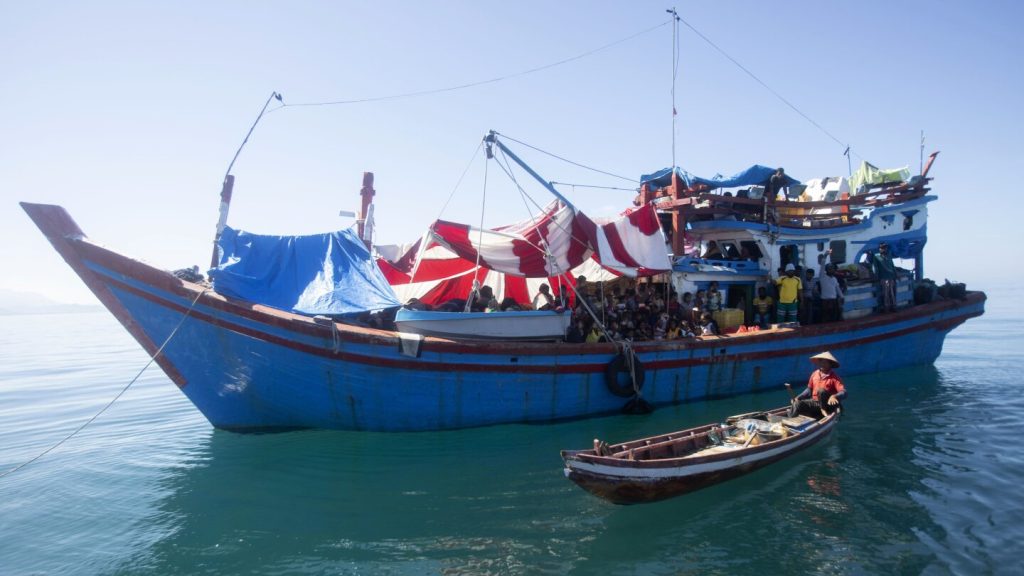About 140 Rohingya Muslims, mostly women and children, were found on a wooden boat anchored off the coast of Indonesia’s Aceh province. The boat had been floating for several days, and three Rohingya died on the journey. Local residents refused to let them ashore due to concerns about previous incidents involving Rohingya refugees causing unrest. The group had left Cox’s Bazar in Bangladesh on October 9 and were headed for Malaysia, with some passengers reportedly paying to be transported to other countries.
The community in Aceh provided food to the group, and the United Nations High Commissioner for Refugees also offered assistance. The boat had initially carried 216 people, with 50 of them disembarking in Indonesia’s Riau province. Aceh police arrested three suspects for people smuggling, highlighting the challenges faced by Rohingya refugees seeking safety and shelter. Most Rohingya refugees live in Bangladesh, including those who fled Myanmar’s brutal military crackdown in 2017, which resulted in mass rapes and killings.
The plight of the Rohingya minority in Myanmar has drawn international attention, with widespread discrimination and denial of citizenship. Indonesia, along with Thailand and Malaysia, is not a signatory to the UN Refugee Convention but often provides temporary shelter to refugees in distress. In March, Indonesian officials and local fishermen rescued 75 people from a capsized boat off the Aceh coast, where 67 passengers, including many children, had died. The captain and crew were accused of torturing women and girls before the boat overturned, emphasizing the dangers faced by Rohingya refugees in their search for safety.
The situation in Aceh highlights the challenges faced by Rohingya refugees seeking refuge in Southeast Asia. The refusal of local residents to allow the group to land underscores the complexities of handling refugee crises in the region. As the Rohingya continue to face persecution and discrimination in Myanmar, the international community must address the root causes of their displacement and work towards providing sustainable solutions for their safety and well-being. The arrests of suspects for people smuggling also raise concerns about the exploitation of vulnerable refugees by criminal networks, highlighting the need for stronger measures to combat human trafficking in the region.


